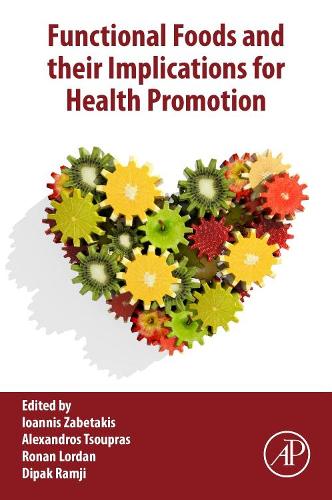Covid-19 and inflammation
Since late 2019, the world has come to terms with the fact that it is facing a major public health crisis against the novel coronavirus disease termed COVID-19 caused by the severe acute respiratory syndrome coronavirus 2 (SARS-CoV-2). As of August 12th 2021, there are over 205 million confirmed cases of COVID-19 and 4,300,000 deaths globally while more than 180 million patients have recovered. The first known case of COVID-19 originated from the city of Wuhan in Hubei Province, China. From there, it has spread to every inhabited continent worldwide.
COVID-19 is a highly infectious disease with severe or even lethal complications and a significant impact on the way in which we live our lives. Whilst the vast majority of people infected with COVID-19 experience mild symptoms and can recover without the need for hospitalization, it has become increasingly clear that those with pre-existing non-communicable diseases such as chronic lung diseases, metabolic syndrome, obesity and diabetes mellitus, cardiovascular disease, and renal disorders, as well as people under immunosuppression (i.e., the elderly and people with chronic rheumatoid conditions like rheumatoid arthritis, Lupus, etc.), are at increased risk of severe illness and mortality. The inflammatory and thrombo-inflammatory manifestations and cascades following SARS-CoV-2 infection are directly linked to the increased severity of COVID-19 complications, especially in patients with such underlying conditions and the elderly.
Thus, the potential for specific foods and nutrients that can beneficially affect COVID-19 severity and outcomes is gathering increasing interest from the scientific community, as well as the general population and media. Given that a common complication in patients with severe COVID-19, and individuals with non-communicable diseases, is excessive inflammation, foods with anti-inflammatory properties may possess a protective role. Likewise, the role of nutritional status and other nutrients, such as selenium, vitamin D, and vitamin C has gathered attention, with vitamin D and selenium deficiency recently linked to COVID-19 severity. Nevertheless, the potential for supplementation of specific foods and nutrients to act as a protective measure against COVID-19 remains a topic of debate. You can read more about this here.
The Role of an Anti-Inflammatory Diet in Conjunction to COVID-19
Recently, we published a review paper on the role of inflammation and diet in conjunction to Covid-19. Where, we concluded that no single diet or food item has been proven to prevent COVID-19 infections. Regardless, supplements have received a great deal of interest from both the public and the scientific community as an effective and low-cost method for controlling or mitigating COVID-19 infections. Despite evidence that some supplements can affect outcomes in other respiratory tract infections, such as reduced inflammation marker levels, shortened ICU stay lengths, and incidence of infections, it is still unknown whether dietary supplements or nutraceuticals have the ability to therapeutically alter patient outcomes against COVID-19. Furthermore, there is little research linking them with the prevention of COVID-19. With the aid of larger-scale COVID-19 clinical trials and investigations, the therapeutic or preventative functions of a nutrient approach will likely be clarified. Until then, the public should focus on immunisation through vaccination and prioritise appropriate nutritional status, and encouraging an active lifestyle.
Covid-19 and our diet
The COVID-19 pandemic is a significant threat to human life worldwide. As there is no known effective cure or treatment for COVID-19 yet, all potential therapeutics, mitigation interventions, and prevention strategies that may reduce the incidence or severity of infection are of vital importance. In this review, inflammation associated with pre-existing comorbidities was highlighted as a significant risk factor for COVID-19 patients. As a result, some of the anti-inflammatory therapies currently under investigation were discussed. Likewise, the potential role of a person’s nutritional status and nutrients and foods that may exert anti-inflammatory and immunomodulatory effects were explored, as summarized in this figure.
Nutrients such as vitamin C, vitamin D, and zinc may hold some promise for the treatment of COVID-19. Likewise, nutrients with anti-inflammatory, antithrombotic, and antioxidant properties may prevent or attenuate the inflammatory and vascular manifestations associated with COVID-19. Indeed, following healthy dietary patterns and avoiding unhealthy dietary patterns, such as the Mediterranean and Western diets, respectively, may have beneficial effects against infection but require significantly more research. Our primary conclusion is that it is vitally important to maintain a healthy diet and lifestyle during the pandemic. This is especially important for the vulnerable in our society. In particular, those at high risks of infection should at least maintain their nutritional status by ensuring they reach their RDA of the potentially beneficial nutrients outlined in this review. Certainly, governments should actively encourage healthy eating and exercise in conjunction with the guidance provided on personal hygiene and physical distancing. That being said, various socioeconomic issues, lifestyle constraints, access to food, financial problems, or “stay in place” mitigation guidelines may reduce one’s ability to achieve this. Further research and review of the topics discussed in this manuscript are required as research evolves during the pandemic to discern the effective and ineffective strategies implemented globally.
A new book on functional foods
Our team has been editing a new book on functional foods and their implications for health promotion.
Publisher: Elsevier Science Publishing Co Inc
ISBN: 9780128238110 ; Number of pages: 342; Dimensions: 229 x 152 mm
